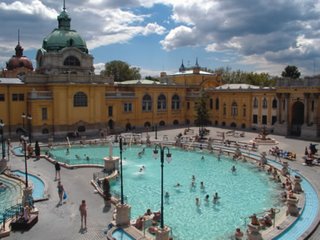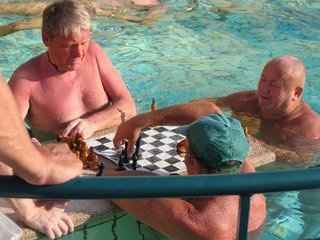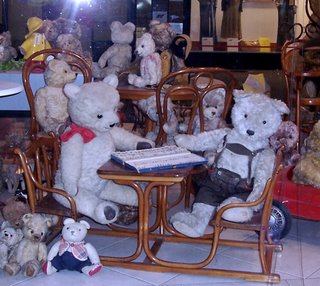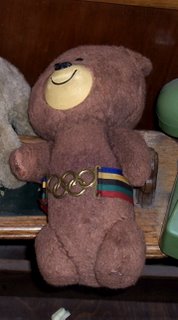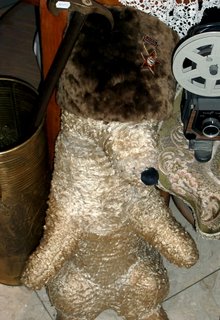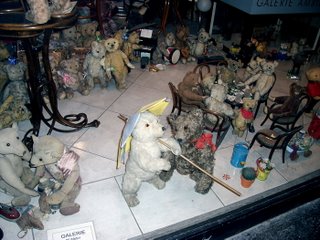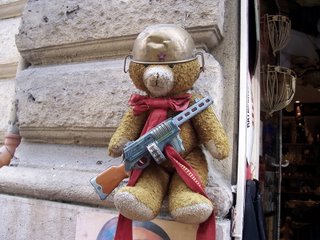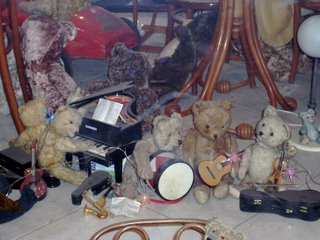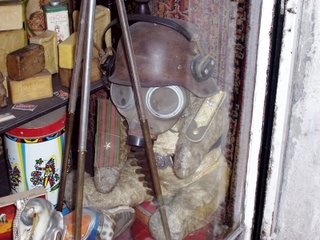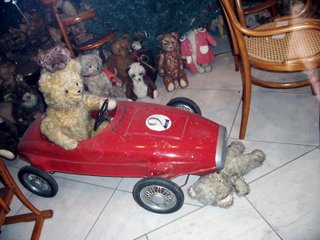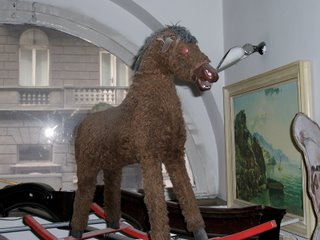I remember my first conversation about religion. It was in my Berkeley preschool, as my friends and I punched holes in the walls with gender-neutral wooden toys and cheerfully defaced our childrens’ books about diversity. We all knew that there were Jewish kids and Christian kids. Kids who were half-and-half were the luckiest because they got to celebrate both Christmas and Hannukah, the three-year old equivalent of winning the lottery. I pitied my friends who only got one measly holiday.
My parents met at a meditation seminar. My goyish mom is really more Buddhist than anything else, and aside from a few Christmas Eve church services I really grew up Jewish. Bay Area Jewish. On the Camp Kee Tov bus we sang Hebrew camp songs, but also chanted “Me So Horny” and “War (huh) What is It Good For.” I studied Hebrew with a hairless, guitar-strumming reform rabbi who took me to services at the Berkeley Aquarian Minyan (“Now we’re going to sing the Tribal Sh’ma!”) and the East Bay Feminist Minyan (“And when G-d came down, she said…””).
When I moved to New York, where my religious activities included co-hosting the infamous Punk Rock Seder (AKA “The Hardest-Working Seder in Judaism.”) I searched for years for a synagogue that I really liked, and finally I settled on Congregation Beth Simchat Torah, New York’s Lesbian-gay-bisexual-transsexual conservative Jewish congregation. I started going there because they had free high holy days, and stayed because I loved the lesbian rabbi, who gave hard-nosed, practical, and inspiring talks. CBST had so many members that on Yom Kippur they had to hold services in the Javitz Convention Center, where during services you could look through the huge plate glass windows at the helicopters darting back and forth over the Hudson. I remember one invited Rosh Hashana speaker urging the congregation: “Perhaps you feel that you don’t have enough money to join CBST. I have some ideas for to help you save up and become a member. Guys, cut out a couple of your subscriptions to Maxim and Details. And ladies, on the second date, when you’re moving in together—don’t use a moving company, move yourselves.”
September: I go to the big synagogue on Dohany street for Yom Kippur. It’s a neo-Moorish building, with stained glass windows and a giant organ. The morning service is attended by a handful of older, conservative Hungarians. Whereas the gay New York Jews were really religious, crying and breast-thumping, the Dohany Hungarians talk incessantly, completely ignoring the prayers.
I notice five quiet college-age girls. In the sparse crowd of older Hungarians they stick out like a sore thumbs; they must be Americans, since the younger Hungarian Jews have apparently decided to sit this one out.
I break the Yom Kippur fast at Budapest’s only Mexican restaurant—where I see the five Jewish girls. They MUST be from California. Sure enough they‘re UC Berkeley students, originally from “So Cal,” on a semester abroad in Budapest. I realize that every Californian Jew in Budapest is probably breaking their fast at this restaurant.
Early November: I thought that I wouldn’t meet any Jews in Budapest, but I was wrong. Through fellow New Yorkers Inna and Ljova (Jewish musicians both), I meet Pablo, the Argentinian hurdy-gurdy player. He is an intelligent and passionate dude, who lights up like a lantern when he plays Brazilian music. And he only plays Brazilian music. Pablo is very clear about that.
He is also Jewish—everyone I’m meeting these days seems to be Jewish. But his Jewishness means something very different to him:
On Communication:“I am Jewish, you are Jewish. If you speak English to me I can understand you better than someone who is not Jewish.”
On Anti-Semitism:“I have faced this since before I can remember, and it will never change. When I was a little boy, they beat me, they tease me, they throw rocks at me. From the beginning, they saw me as different, and they will always see me as different. They wanted me to be an intellectual, a professor. This is all we are good for, to be a nice professor, an intelligent Jew. I do not accept this. I do not want to be an intellectual. I play music because it makes me feel like an animal.
“The possibility of integration does not exist, it is a myth. It is a disaster. It is not really possible. They hate us, and they will not stop hating us. Every 50 years or so they try to kill us all. I do not like Israel, I do not feel comfortable there, but it is the only thing standing between us and disaster. If they destroy Israel, then you and me and you will have to get guns.
“There is anti-Semitism everywhere. They tell me that in America it is different. You say this and so I must believe you, but I cannot accept it. It must be the same there as everywhere.”
On Language“I grew up speaking Spanish, I do not speak Yiddish, I understand Hebrew but it is not my first language. I have no language. This Spanish is the language of my oppressors, it is not my language. I have no language, and so how can I write?”
I meet Bob—fiddler, New York native, Budapest institution, walking encyclopedia of folk styles. Pablo grills him: is he Jewish, is he religious, why does he wear a kippah, and so on.
Pablo: Do you see much anti-Semitism in Hungary?
Bob: Look, I’m from New York, I don’t give a shit. If someone starts shit with me I’ll kick their ass, I don’t care. I’m a New York Jew. They know not to mess with me.
Mid-November: Inna and Ljova introduce me to a new bar: Siraly, which they describe to me as “You know, Jewy.” This may be my new favorite word. The clarinet player from their gypsy band is in town, and they want to have a klezmer jam at Siraly. There seem to be two non-Jews in attendance. One is the saxophone player from Hungarian gypsy-jazz band Besho Drom. He turns out to be Jewish. There’s also a well-mannered blonde filmmaker from New York named Gregory Stewart Edwards. You guessed it, also Jewish.
I realize that I’ve never really played klezmer. Some of the melodies come, but from so far back in my brain that I don’t know how I know them. Later, at bluegrass practice, I talk to a bandmate:
Sarah: I’m a Jew who knows bluegrass but no klezmer. Is that weird?
Bandmate: No, Matyas [our mandolin player] is the same. He is Jewish and he plays only bluegrass.
Sarah: Matyas is Jewish?
Late November: I meet a music teacher from an orthodox Jewish school in Budapest. She’s very nice but in passing she refers to reform Jews as “not real Jews.” She ridicules John Zorn for wearing tsitsit but no kippah. I venture that maybe this is his way of sticking it to the man. She doesn’t laugh.
December: Why is everyone here Jewish? Didn’t I just come here from the most Jewish city on earth? I ask Pablo why he thinks that I have been meeting so many Jewish musicans. He tells me: “Of course, Sarah, you’ve returned to the scene of the crime.”
Everyone I meet says that Hungarian Jews are very removed from their traditions, integrated, with no real connection to their Jewishness. But all of the Jews I’ve met (granted most are not actual Hungarians) seem so much MORE Jewish than me. They speak Hebrew, they speak Yiddish, they play klezmer, they keep kosher, they move to Israel and back. I never used to doubt my own Jewishness. Now for the first time I feel how far away from my own tradition that I am.
I am preparing for a Hannukah concert, playing Hannukah songs, niggunim (wordless songs) and Arabic songs with an Israeli hippy named Yonathan. He is a lovable young ragamuffin, but going through a serious quarter-life crisis. He spent some years bumming around the Mediterranean without a care in the world and without a sheckel in his pocket—doing the real hippy nomad Uncle Carl thing. Recently it occurred to him that he ought to devote his life to something. He has a lot of anxiety about this, and every time I see him he announces a new major life decision. He will only play bass, and not violin or guitar. He is giving up music. He will get a degree in computer science. He will become a professional musician. He is perpetually lovestruck and flits hither and thither through the bars of Budapest, charming the pants off hapless Hungarian chicks and then wandering off in a fog of big questions and existential angst.
Pablo: He is charismatic, you know? He is Israeli. They are not like us. They are…pushy.
Yonathan: (suddenly materializing) Sarah! Can I borrow your violin?
Pablo: He has chutzpah. Not like you.
(points to Rick.)Rick: Me?
Pablo: You have no chutzpah. It’s OK! This is the way you are. I have none either. We are chutzpah-less.
Yonathan: Sarah! Let me borrow your violin.
Sarah: Sorry.
Yonathan: (leaves, dejected, then suddenly returns) I just want to hear someone play the violin with these people downstairs.
Sarah: Yonathan, I just don’t lend out my violin.
Yonathan: Then you go downstairs and play.
Pablo: You see?
Yonathan: See what? What?
Pablo: You are charismatic.
Yonathan beams, does a handstand. Yonathan: (upside down) Hello!
(coming back up) Really, give me your violin.
The rehearsal process with Yonathan is hard for me. The forms are different, not American, and while some of these songs are easy to pick up others are so unfamiliar. It’s hard to get used to the idea that the melody is not to be tampered with. Yonathan criticizes my inability to pick up the melodies as quickly and accurately as he does. Of course he’s right, I don’t know this music, but it makes me feel deeply, inordinately ashamed, like somehow I’m being exposed as not a real Jew.
Rick has become the token goy. At Siraly one night, over kosher palinka (I thought all palinka was kosher, but I was wrong) someone asks him in all seriousness: “Isn’t the fish a Christian symbol?” Rick, bewildered, says something about bumper stickers.
It makes me miss California. It even makes me miss the Tribal Sh’ma.




















